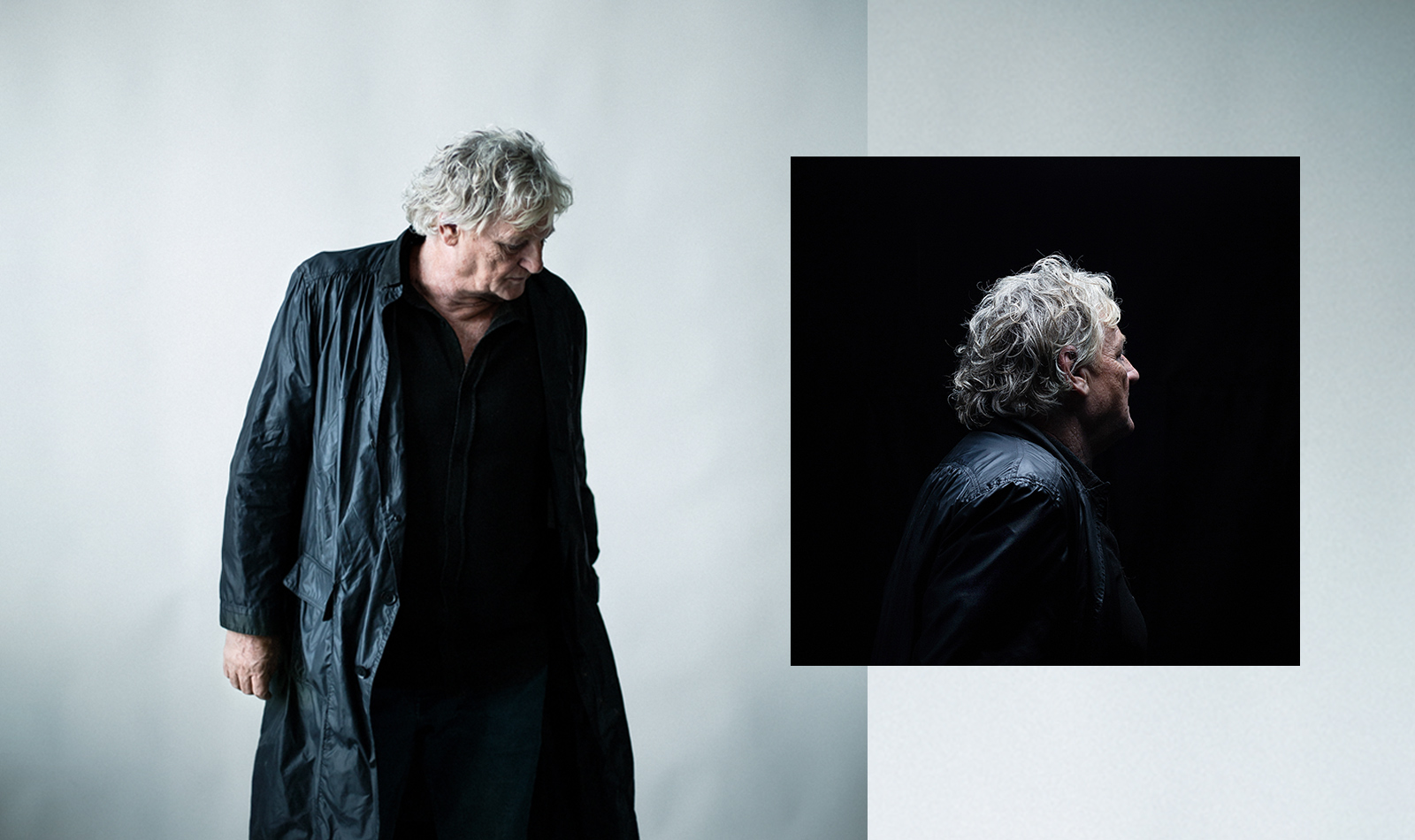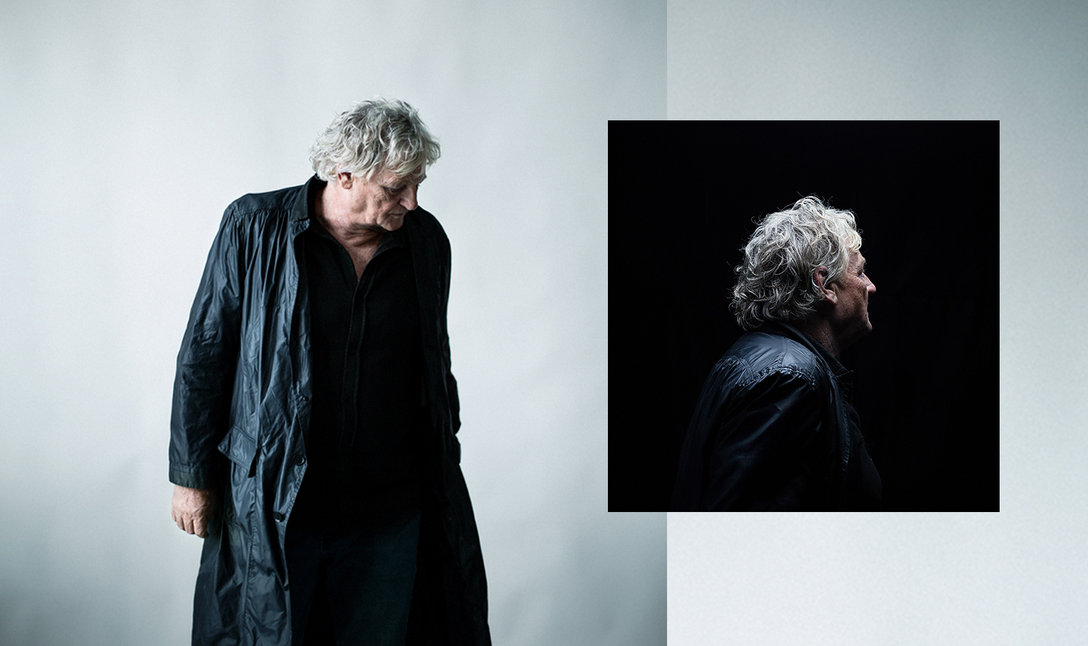The Best of Rodolphe Burger, French Rock’s Original Visionary
By
·
October 13, 2025

Photos by Christophe Urbain
Let me be an ugly American for a moment: French rock ‘n’ roll? Really?
If you’re of a certain generation, there’s snippets in your head of Johnny Hallyday, and Plastic Bertrand’s “Ça plein pour moi”—American-style rock music that had plenty of, well, style, but lacked the grit of the blues, and by extension, authenticity. Younger? If you’ve seen Flight of the Conchords’s “Foux Da Fa Fa,” where they show off the depth of their language skills with the word “baguette,” you’ve got something of the same idea.
Now, setting that caricature aside, it’s easy to hear how good French—and for that matter, European—rock music can be. And how certain special musicians have not only a strong, clear national flavor but encompass the American roots of rock, and show us (like the Rolling Stones did) just what it can do, and what we might be missing. One such artist is Rodolphe Burger.
Burger is mainly a guitarist and vocalist, though he doesn’t sing so much as deliver musically modulated vocal lines in a spoken near-drawl that’s both elegant and grave. He is unmistakably French, unmistakably rocking, and unmistakably great. He has a modern sound that stands out in the history of rock; it connects to the blues, classic funk, and incorporates details from punk and even new wave—all with French roots. This lends his own music, as well as his collaborations with others, a remarkably flexible and wide-ranging quality, the music evoking various historical moments while simultaneously feeling removed from time. Except for some production details, his records from 30 years ago sound like they were made yesterday, and vice versa. His own label on Bandcamp offers a treasure trove of his music; here are some wonderful examples.
Kat Onoma
Billy the Kid (remasterisé 2022)
In 1980, at the age of 26, Burger founded the rock band Kat Onoma—initially known as Dernière Bande, which he ultimately repurposed as the name of his record label. A jazz-rock band with heavy emphasis on the rock, the kind of band you get when you channel something like Steely Dan through punk and post-punk, Kat Onoma made five studio and three live albums through the early 21st century. A striking example is this one, originally released in 1992. It’s not any kind of country style rock, or an arrangement of Aaron Copland’s ballet, but a set of songs that come out of, and pay homage to, fairly obscure American beat poet Jack Spicer and his poem Billy the Kid. Sung mostly in English, with some adaptations of Spicer’s words, this has a big, glossy sound with plenty of toughness and grit underneath.
Rodolphe Burger, Erik Marchand
Before Bach
Burger is an exceptional collaborator, possessing the skill and balance of ego and generosity to adapt to varied situations while always maintaining his unique voice. He’s like the charismatic friend who is happy to be with others and never needs to be the center of attention. He’s the glue to this remarkable mix of styles, connecting the traditional Breton singing of Erik Marchand with instrumentation by Franco-Algerian oud player Mehdi Haddab. The title originates from the counterpoint the musicians employ, a modal method derived from Renaissance vocal music. These pieces might seem disjointed on paper, but when put together, the puzzle they form is seamless, rich, and profound.
Rodolphe Burger & Meteor Band
Hommage á Serge Gainsbourg
Ma mais oui, it should be de rigeur for a French musician to pay tribute to the one and only Serge Gainsbourg, who was not just a musical star but a pioneer of multiple styles—as well as just being pretty damned stylish. Live, and with guests like Jane Birkin (encore, mais oui) and Mick Harvey, it’s one Gainsbourg favorite after another here; the album acknowledges the debt contemporary French musicians have to him, while still remaining firmly stamped with Burger’s laconic, tough-minded attitude.
Ben Sidran
Rainmaker
Ben Sidran began his career as a young rock musician, playing in Steve Miller’s band and with Boz Scaggs. He’s done session work with some of the biggest stars in rock, and has had a notable sideline as a music journalist. His own music-making has explored the sweet spot of jazz, rock, soul, and the blues—much like Scaggs and, especially, Mose Allison. He describes this album as a sort of studio party for his 80th birthday, and Burger’s guitar and voice feature on a few tracks.
Tinariwen
Amadjar
.
00:10 / 00:58
Where else does Burger go? Here is Tinariwen, a great international rock group and one of the standard bearers for rock and native blues from the Sahel. With Warren Ellis joining Burger as another guest, the European and Tuareg musicians play a loping, hypnotic groove, guitars keening above and in the background, fleshing out individual moments with crunching chords.
Rodolphe Burger, James Blood Ulmer
Blood and Burger: Guitar Music
Blood and Burger may not be as big or as well-known as his work with Sidran, Françoise Hardy, Marchand, and others, but it’s truly special—and spectacular—nonetheless. Here we have two strong musical personalities meeting on equal ground; a sinuous guitar sound meets a rich one, rock and blues rhythms meet shuffle grooves and freedom. Burger and harmolodic/free-folk/blues guitarist and singer James “Blood” Ulmer sound like they could get one stage and jam on a groove until the end of time—oil and vinegar, a phenomenal emulsification of two complementary traditions with common roots and the feeling of the earth under the musicians’ boots. This is heavy music. That’s not weight, though, but mass, there’s just so much that’s glorious, beautiful, and soulful happening.
Rodolphe Burger & Olivier Cadiot
Psychopharmaka
Perhaps the best way to approach this wild album from Burger and lyricist Olivier Cadiot is to start with their description: “Psychopharmaka puts Germanic culture through the blender and then the shaker.” Figures alluded to—and sometimes invoked directly—include, but are not limited to, Kurt Schwitters, Kraftwerk, Frederich Nietzsche, Paul Celan, Anton Bruckner, Kaspar Hauser, and the arrangements incorporate Lieder, German poetry, disco drum machines, and Art-of-Noise-like sampler stabs. There’s also a cover of “Da Da Da,” and a track which name-checks Romanian classical music conductor Sergiu Celibidache. The record’s biggest asset can be summed up in a simple question: What isn’t on this thing?
Rodolphe Burger
Avalanche
Burger’s latest full album was released in November 2024. It’s easy to hear it as a stylistic compendium of everything he’s done to date, but there’s no self-conscious retrospection here; that’s just who Burger is as a musician. He nourishes his creativity from multiple angles, taking the instrumentation and arrangements in multiple directions without losing track of his roots. And like the previous albums, there’s one more nod to his foundation, and one more surprise: pop-song-crooner and Jerry Lewis’s comedic foil Dean Martin.
Rodolphe Burger & Philippe Poirier
Play Kat Onama
In 2014, Burger and Philippe Poirier, the other surviving member of Kat Onama, re-recorded the Billy the Kid music, doing it from scratch with new arrangements, expressive ideas, and style. They opened up space in the music, slowed it down, put in more recordings of Spicer reading the poem; they took their time to play it, say it, and let it sink in. The first version was rock-inspired by poetry, the end result is something closer to poetic rock, fueled by Burger’s inimitable savoir-faire.

